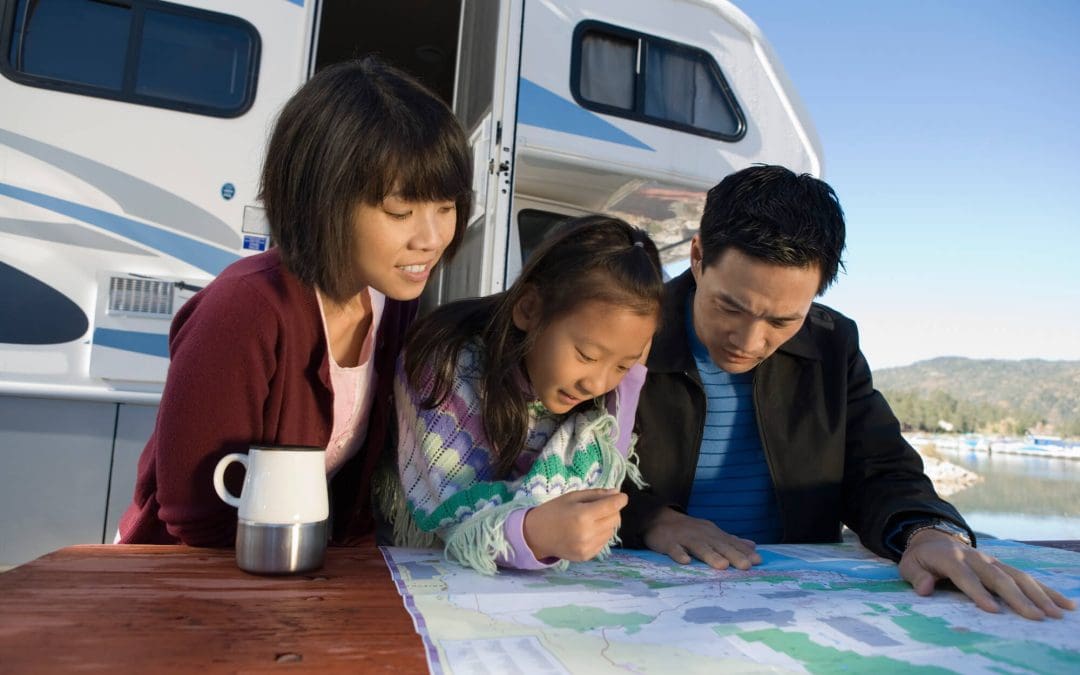The allure of the open road, the freedom to explore new places, and the comfort of having your home with you wherever you go are reasons why living in an RV has become increasingly popular. Whether you’re a full-time RVer, a weekend warrior, or planning a lengthy road trip, ensuring your safety is paramount. Here are practical tips to ensure safe and secure RV living.
1. Regular Maintenance Checks are Crucial for Safe RV Living
Before hitting the road, a thorough check of your RV is essential. This includes inspecting the brakes, tires, lights, and engine. Regular maintenance helps avoid breakdowns and ensures your safety on the road. Keep an up-to-date maintenance log and schedule routine inspections at professional service centers.
2. Secure Parking and Campsites
Choosing the right place to park or camp can significantly impact your safety. Opt for well-lit, reputable campgrounds and RV parks with good reviews. Check for security measures like surveillance cameras and on-site security personnel. When boondocking (camping without hookups), stay in designated areas known for safety and always lock your doors and windows at night.
3. Safe Driving Practices
Driving an RV requires more attention and skill than driving a regular vehicle. Be aware of your RV’s height and weight. Use GPS designed for RVs that consider road restrictions based on your vehicle’s dimensions. Take breaks every few hours to avoid fatigue, and always adhere to speed limits and road signs.
4. Fire Safety is Part of Safe RV Living
RVs are susceptible to fire due to cooking equipment and electrical systems. Install smoke detectors and have a fire extinguisher on board, checking them regularly to ensure they are functional. Familiarize yourself with how to use the extinguisher.
5. Gas and Carbon Monoxide Safety
Install carbon monoxide detectors and inspect your RV’s gas lines regularly. Never use portable heaters or stoves inside the RV without proper ventilation to prevent carbon monoxide poisoning.
6. Emergency Preparedness
Keep an emergency kit in your RV that includes first-aid supplies, water, non-perishable food, flashlights, extra batteries, and necessary medications. Include tools for basic repairs and ensure you have a spare tires and know how to change one.
7. Don’t Forget Weather Awareness is Essential for Safe RV Living
Always check the weather forecast before and during your trip. Avoid driving in severe conditions, and be aware of the procedures for dealing with different types of weather, such as high winds or flooding. Know where you can seek shelter if needed.
8. Insurance and Documentation
Ensure that your RV and its contents are adequately insured. Keep all your important documents, including registration, insurance, and personal identification in a safe place. Consider a safe or a locked drawer for storing valuable items.
9. Community and Communication are Part of Safe RV Living
Keep in touch with family or friends about your travel plans and current location. Join RV communities online for tips and updates about different locations. Having a network of fellow RVers can be invaluable for support and advice.
10. Personal Security
Invest in security upgrades like better locks for doors and storage compartments, motion-sensor lights, or even a security system with remote monitoring capabilities. Always be cautious and aware of your surroundings.
Living in an RV offers a unique and adventurous lifestyle, but it also requires a commitment to safety and preparedness. By following these tips, you can protect yourself and your belongings and enjoy the journey with peace of mind.
FAQs about RV Safety
What are the most critical safety checks before starting an RV trip?
Ensure your tires are correctly inflated and have good tread, all lights and signals are working, brakes are in optimal condition, the hitch system on towable RVs is secure, and all fluid levels (oil, coolant, brake fluid) are adequate.
What are the guidelines for safe driving in an RV?
Drive at safe speeds, considering your vehicle’s size and weight. Allow for increased stopping distances. Use mirrors to enhance visibility and avoid sudden lane changes.
What should you do in case of an RV breakdown?
Pull over safely, use road flares or hazard triangles to alert other drivers, and contact roadside assistance. Keep an emergency kit in your RV, including water, snacks, and warm clothing.
How can you improve security while staying at RV campsites?
Use locks on all storage compartments, consider a motion-sensor light or security camera, and get to know your neighbors for an added layer of security through community awareness.
Blue Ribbon RV Inspection provides RV inspections and services to customers in Arizona. Contact us to request an appointment.

